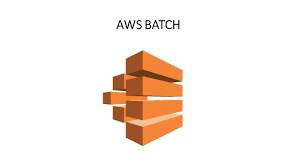AWS Batch
 Sai Deva Harsha
Sai Deva HarshaAWS Batch

AWS Batch is a managed service offered by Amazon Web Services (AWS) that enables the execution of batch computing workloads on the AWS cloud. Here's a summary of the AWS Batch:
Batch Processing: AWS Batch is designed to handle batch processing workloads, which involve processing large amounts of data or running resource-intensive tasks.
Fully Managed: AWS Batch takes care of the infrastructure and resource management, allowing users to concentrate on developing and running batch jobs without the need to manage the underlying infrastructure.
Resource Optimization: AWS Batch automatically provisions and scales compute resources based on the requirements of batch jobs, ensuring optimal resource allocation for efficient job execution.
Job Scheduling: AWS Batch provides flexible job scheduling options, allowing users to define job dependencies, set priority levels, and control the order of job execution.
Compute Environments: Users can define compute environments within AWS Batch, which are clusters of EC2 instances used for executing batch jobs. Various EC2 instance types and sizes can be chosen to meet specific workload requirements.
Job Definitions: AWS Batch utilizes job definitions that specify the parameters and requirements of batch jobs. This includes defining the Docker container image, the command to execute, and input/output data locations.
Integration with AWS Services: AWS Batch seamlessly integrates with other AWS services, such as Amazon S3 for storing input and output data, AWS CloudWatch for monitoring and logging, and AWS Identity and Access Management (IAM) for access control.
Cost Optimization: AWS Batch offers cost optimization features by allowing users to set compute resource limits for jobs. This helps control the maximum number of instances or vCPUs utilized by jobs, ensuring cost-effective resource utilization.
Monitoring and Logging: AWS Batch provides built-in monitoring and logging capabilities through integration with AWS CloudWatch. Users can monitor job progress, track resource utilization, and access logs for troubleshooting and analysis purposes.
Flexibility and Scalability: AWS Batch offers flexibility to run various batch workloads, ranging from simple one-time jobs to complex multi-step workflows. It automatically scales to handle fluctuating workloads and efficiently processes large-scale datasets.
In summary, AWS Batch simplifies the management and execution of batch processing workloads on the AWS cloud through its managed and scalable service. It optimizes resource allocation, enables flexible job scheduling, integrates with other AWS services, and allows users to focus on their batch jobs while AWS manages the infrastructure.
I post articles related to AWS and it's services, so please consider subscribing to the newsletter to get notifications whenever I post an article :)
Subscribe to my newsletter
Read articles from Sai Deva Harsha directly inside your inbox. Subscribe to the newsletter, and don't miss out.
Written by

Sai Deva Harsha
Sai Deva Harsha
DevOps Engineer